2018 is here – what are your goals?
Going forward, one of the best things you can do professionally is to develop your own personal brand. What is it? What can you do about it? And why should it help you? A personal brand is not something you have to do or something you should dread. It is a blank canvas in which you can paint yourself the professional world you desire: an opportunity to demonstrate and create everything you wish you got in your job but don’t.
Here some points to get you excited about forging your personal brand.
A personal brand is inevitable
You’ve already got one, even if you’re not purposefully aware of it, working on it, or honing it to be what you like. Everything you do online attached to your name or your identity is already your personal brand: your social media, your comments, your LinkedIn, the articles you post – or the lack thereof. These all inform employers, your connections, and the people around you how you think, in a way.
It’s not necessarily bad to have an inactive brand, but it is lost potential. If developing your career by your own terms is something that appeals to you, then consider rethinking your brand.
Consider your posts
When you make a post for your personal brand – in any format, social media, or a video, or blog – consider that, in a subtle way, the contents reflect your own style and values.
Consider the language you use. Make each word count – on the internet, briefer is better. As some guy once said, “Brevity is the soul of wit.” In the modern day, we might call this KISS – Keep It Simple, Stupid. So use it.
Your links – they should be engaging, and preferably unique. There is a balance to be made between the quality of the content you post, and the accessibility. That is, you do actually want people to click and read the content you post, but you also want the posts themselves to be enjoyable and factual. Make your readers take something home out of each post they read from you.
Either your articles appeal to a general audience of people, or they target a specific niche in your profession. Either strategy is valid, but this is a distinction to make early on, to focus in on as soon as possible. Which do you prefer?
Consider your visuals
You don’t need to be a graphic designer, but it can be clever to consider a nice visual format for your posts, your blog, whatever online format you choose to develop your personal brand on.
Imagine if, when glancing through your page, you had a nice, consistent design choice, whether that be a color scheme or a set of images (as brief examples, could be drawn or vintage) that all stick to a constant theme. Imagine if all your professional and/or personal social media sites, Twitter, Instagram, Facebook, shared a coherent feeling, banner, and scheme. This is really impressive if you can pull it off, even if your profession is not in a traditionally “creative” field.
All fields have some amount of creativity involved, no matter how menial they may seem. It’s what human beings do: we create. And if you can let some of your passion and creativity shine through your own personal or shared content, some of your spirit can shine through and will let you stick out of the crowd.
Finally: consider your theme
This may go without saying, but everything you post online, your brand, should sell you and your individual merit. We call it, classically, a USP, or Unique Selling Proposition: why you and not Joe?
What is your insight, your expertise? Maybe it’s all in your presentation; maybe your knowledge shines through in your comments, or in your writing. Maybe you have a really solid collection of articles, or just show your experience in an organic way.
If you design your personal brand truly well, genuinely, sincerely, your personality will shine through, your humanity. And that connection is one of the most valuable you can make, because, in the end, those employers and connections are also just people.






